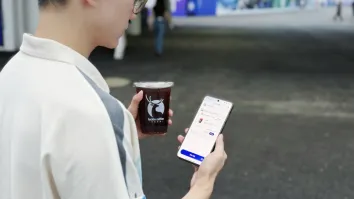
Singapore banks push ahead to post-pandemic era
Significant loan book exposure in China is helping them recover faster than their regional peers.
Whilst their South and Southeast Asian peers are still struggling to contain new waves of COVID-19 infections, Singapore banks have moved well in terms of recovery and are closer towards a post-pandemic banking era, reports S&P Global Ratings.
The strong second-quarter results of Singapore’s big three banks—DBS, UOB, and OCBC—show that the country’s banking sector is on track to significantly improve its earnings, a brightening business outlook, and normalizing credit costs.
DBS reported a 54% increase (year-on-year) in net profit in the first half of 2021. OCBC disclosed an 86% increase, whilst UOB's net income grew 29%.
"Singapore banks are clear beneficiaries of strong macroeconomic tailwinds. They are benefiting from the economic rebound in the US and China in particular," said S&P Global Ratings Credit Analyst Rujun Duan.
"Resurging working capital and investment demand from corporate clients, a vigorous mergers and acquisitions market, and a resilient consumer sector in Greater China and Singapore put them in a sweet spot for more lending opportunities,” Duan added.
Singapore banks' diversified business profile is also helping this rebound, S&P said.
“The institutions' noninterest income, such as fees and commissions, are rising sharply. The banks' wealth management arms and loan-related fees are largely driving this outperformance. Customer trading gains are also rising quickly,” the report read.
Greater China, SG boost
The three banks’ significant exposure in Greater China and Singapore markets is noted to be bolstering their recovery compared to lenders from other markets in the region. These two markets account for about three-quarters of Singapore banks' loan books, the report said.
Effective pandemic containment and high vaccination coverage in Greater China and Singapore are notedly reducing downside credit risks in those markets.
“Singapore banks' exposure to Greater China and Singapore is also bolstering their asset quality. The institutions are making a smooth transition away from debt moratoriums offered to pandemic-hit borrowers in those two markets, as COVID caseloads are well contained,” S&P reports.
Moratorium-supported debt also accounts for just low single digits of Singapore banks' balance sheets, the ratings agency added.
The institutions have also maintained record high levels of provisions, even as asset quality improves in their major markets. The three Singapore banks maintain nonperforming loan ratios of a flattish 1.5% and a provision coverage ratio of above 100%.
However, downside risks still remain for the high-flying Singapore bank market. Lenders will still need to navigate asset quality pressures over the next 12-18 months, S&P warned.
Further, 10-15% of their loan books are allocated to neighbouring markets in SEA, which are struggling to contain waves of COVID infections. Low vaccination rates in those markets have led to repeated lockdowns, reduced near-term economic prospects, and a persistent need for loan repayment moratoriums.
Photo courtesy of Peter Nguyen

















 Advertise
Advertise











